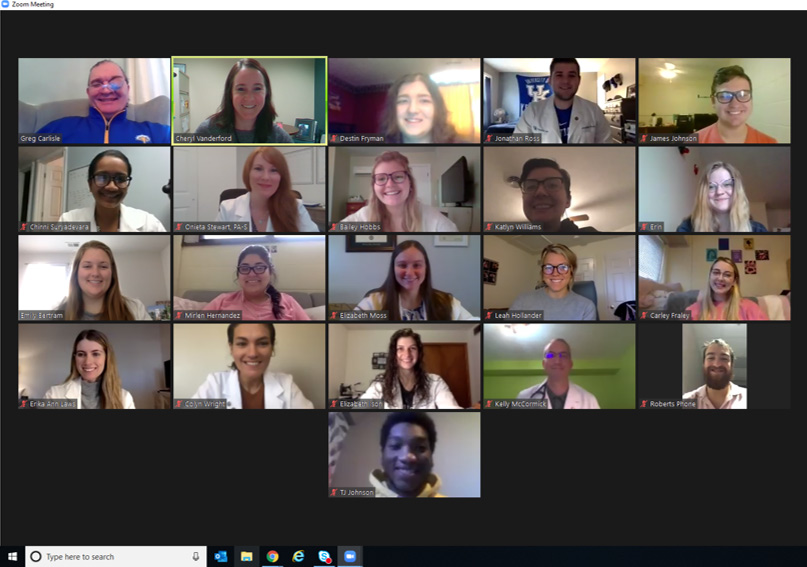UK PA Program Collaborates with Morehead State University Theatre Program to Practice Psychiatric Patient Simulations
Dec 16, 2020
LEXINGTON, Ky. (Dec. 16, 2020) -- The University of Kentucky College of Health Sciences Physician Assistant Studies Program along with the Morehead State University’s Theatre Program recently completed its second year of psychiatric patient simulations via Zoom.
The inspiration for the unique collaboration came from both Cheryl Vanderford, MPAS, PA-C, assistant professor in the UK PAS program, and Greg Carlisle, MFA, assistant professor in the MSU Department of Theatre, Music and Dance.
“For our PAS students, the goal of the activity was to create a safe place for our students to practice psychiatric patient interviews before they get out into a real-world setting,” Vanderford explains.
The simulation was mandatory for first-year PAS students who were enrolled in Vanderford’s PAS 655: Psychosocial Factors in Primary Care course and was presented as an extra credit opportunity for undergraduate theatre students taking THEA 314: Acting for the Camera, THEA 355: Theatre History II or THEA 284: Acting Technique courses at MSU.
“This was a wonderful chance for us to learn how to work with patients in a face-to-face setting since it can be difficult to fully understand how to approach scenarios like this with just having readings and class lectures,” said UKPAS Class of 2022 student, Drew Greenlee, “this virtual simulation gave us an opportunity to practice some of the interview techniques that we had been learning.”

In terms of preparation for the simulation, MSU Theatre students, James Johnson and Destin Fryman said they were given a list of various mental health disorders to choose from and initially struggled in how to portray their role and avoid fitting a stereotype.
“We wanted to portray ourselves as honestly as possible and avoid stereotyping these illnesses because we were not just playing a character, we were patients,” Fryman said, “we truly wanted to help prepare these PAS students to go out into the professional healthcare setting while simultaneously honing our craft.”
Johnson expresses that although this acting exercise can be considered as ‘work’ for him and his peers, he describes it as “children at play,” and activities such as this simulation allow them to continue to do what they love.
Although these simulations were previously held in-person, Vanderford and Carlisle were able to organize a fantastic learning opportunity for their students and how to overcome obstacles such as psychiatric interviewing and character portrayal in virtual settings.
The success of this exercise truly encompasses the adversity, resilience and dedication these students and their mentors have to their fields.